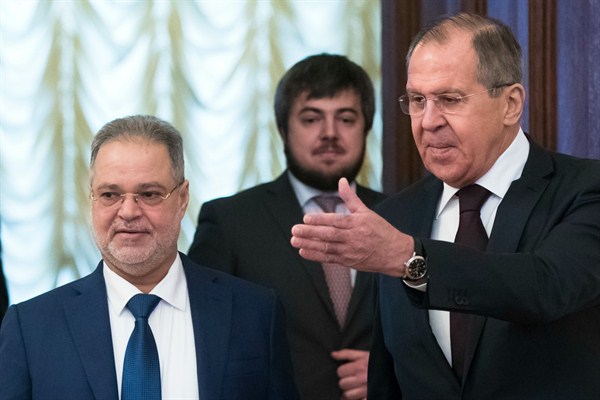In late January, Yemen’s foreign minister, Abdul-malik al-Mekhlafi, traveled to Moscow where he met with his Russian counterpart, Sergey Lavrov. As they discussed the implementation of an elusive peace settlement in Yemen, Lavrov emphasized Russia’s willingness to mediate between rival Yemeni factions.
Lavrov’s somewhat surprising announcement was followed up days later by a statement from the Russian Ministry of Foreign Affairs, offering to broker talks in the burgeoning conflict between separatists in southern Yemen and the forces of Yemen’s internationally recognized government, whose president is in exile in Saudi Arabia. Until recently, Russia has maintained a diplomatic presence in Yemen’s capital, Sanaa, and the southern city of Aden, where the government is now based, after the Houthis drove it out of Sanaa in 2014. During the war, the Russian government has hosted informal dialogues in Moscow with Yemeni political factions aligned with both Saudi Arabia and Iran. So Moscow’s offers to mediate in Yemen have been taken seriously.
The Russian government’s desire to act as a mediator in Yemen grows out of a mixture of strategic interests and regional status aspirations. The main strategic interests relate to Moscow’s desire to capitalize on Yemen’s location and expand its range of Middle Eastern partners.

